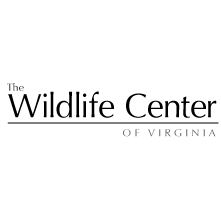
The owlet will be released by Ed Clark, president and co-founder of the Wildlife Center. The release is free and open to the public. Individuals who wish to attend are asked to RSVP to the Center at [email protected].
The address for Grand Caverns is 5 Grand Caverns Road, Grottoes. Release participants should park near Shelter Four. On March 27, a homeowner in Augusta County found a young great horned owl in the front yard and brought it to the Wildlife Center. Center veterinarians examined the owlet and found it to be healthy.
Wildlife Center rehabilitator Brie Hasheem, working with the homeowners, investigated reintroducing the owlet to its nest, but the nest could not be located. The owlet was assigned Patient #18-0210 – the 210th patient of 2018.
The owlet and three other young great horned owls – from Chesterfield, Fauquier, and Isle of Wight counties – were ultimately housed with Papa G’Ho – a male great horned owl that has been a resident at the Center since 2001. Papa G’Ho has served as a surrogate parent for dozens of young owls. Center staff take care to minimize human contact with Papa G’Ho – by keeping him “wild”, the Center can ensure that the owlets he helps raise will survive, and thrive, on their own in the wild.
The owlet has spent the past six months in outdoor flight pens, under the tutelage of Papa G’Ho, growing and developing flight and hunting skills. The owlet is flying well and silently; the owlet has passed live-prey testing. The Center veterinary and rehabilitation staff have determined that the owlet is ready to be returned to the wild. Great Horned Owls are common year-round residents of Virginia. One of the largest owl species, Great Horneds also have one of the most varied diets among raptors found in North America – mice, woodchucks, bats, geese, songbirds, other birds of prey, lizards, snakes, frogs, insects, and worms – skunks seem to be a particularly favorite food.










